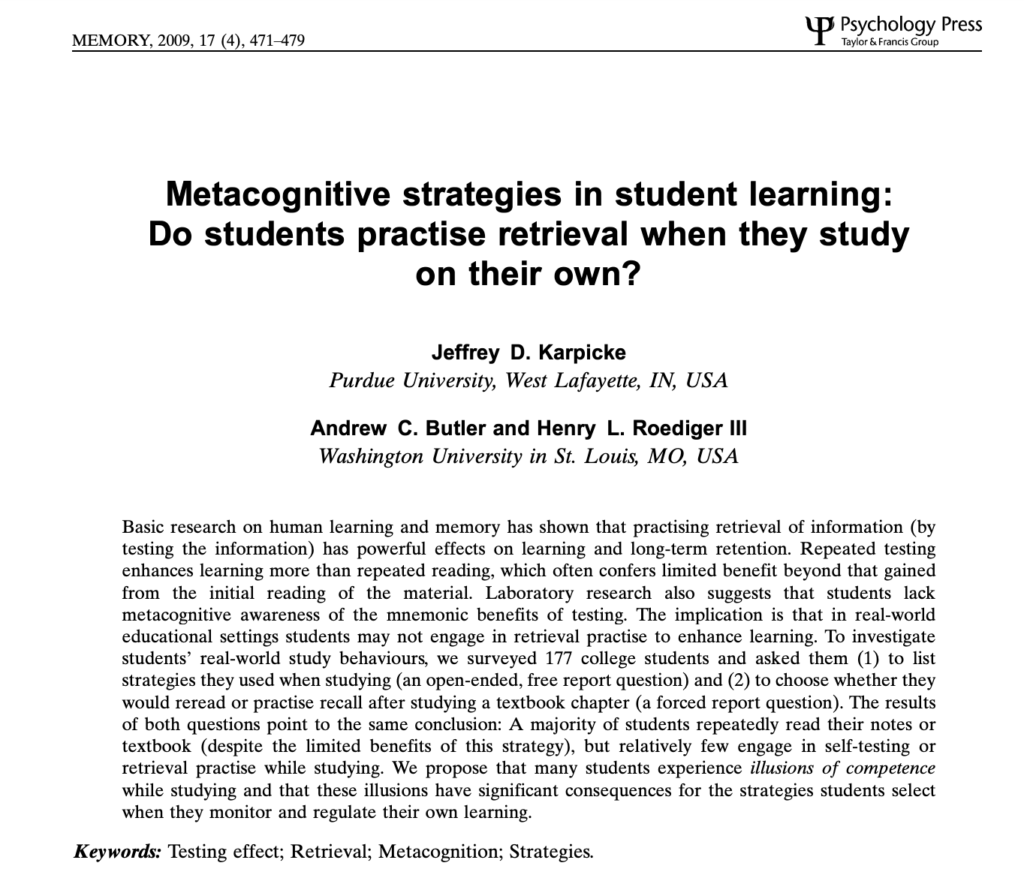Perhaps the most popular of all cognitive science topics is retrieval practice. It is popular, practical for teachers, familiar enough compared to lots of common teaching habits (quizzes and similar) and it has lots of research to explore its impact.
Right now, we hear notes of caution around potential lethal mutations, such as mandated quizzes to begin every lesson (See Kate Jones and EBE’s ‘Retrieval Practice: Myths, Mutations and Mistakes‘. Such problematic implementation can emerge when school leaders or teachers have a weak conception of retrieval. As a result, we must go beyond picking up glossy new resources and dig into the nuance of the evidence base.
My go to resource to explore cognitive science research evidence is the ‘Cognitive Science in the Classroom‘ review for the EEF, which presents the rich, complex picture of how these principles are applied in classrooms. The practical summary resource gives the following description of retrieval practice:
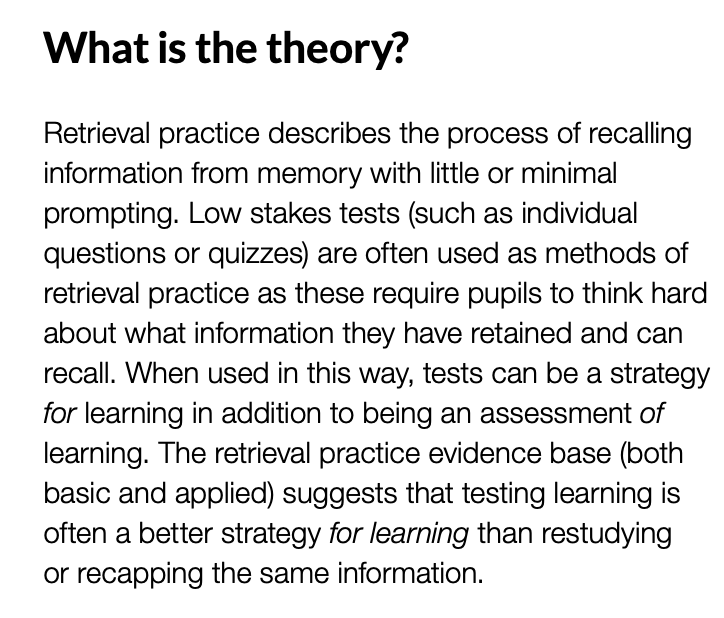
Here are 5 free seminal studies that help make sense of retrieval:
This study explores the power of the humble quiz in science. The research focused on multiple-choice quizzes, with feedback, in different conditions. The quizzing trumped not quizzing in varied approaches and for different tests in the school year…SEE HERE. [Helpfully, for busy teachers, the researchers have created this short, accessible guide on ‘How to Use Retrieval Practice to Improve Learning‘ HERE.]
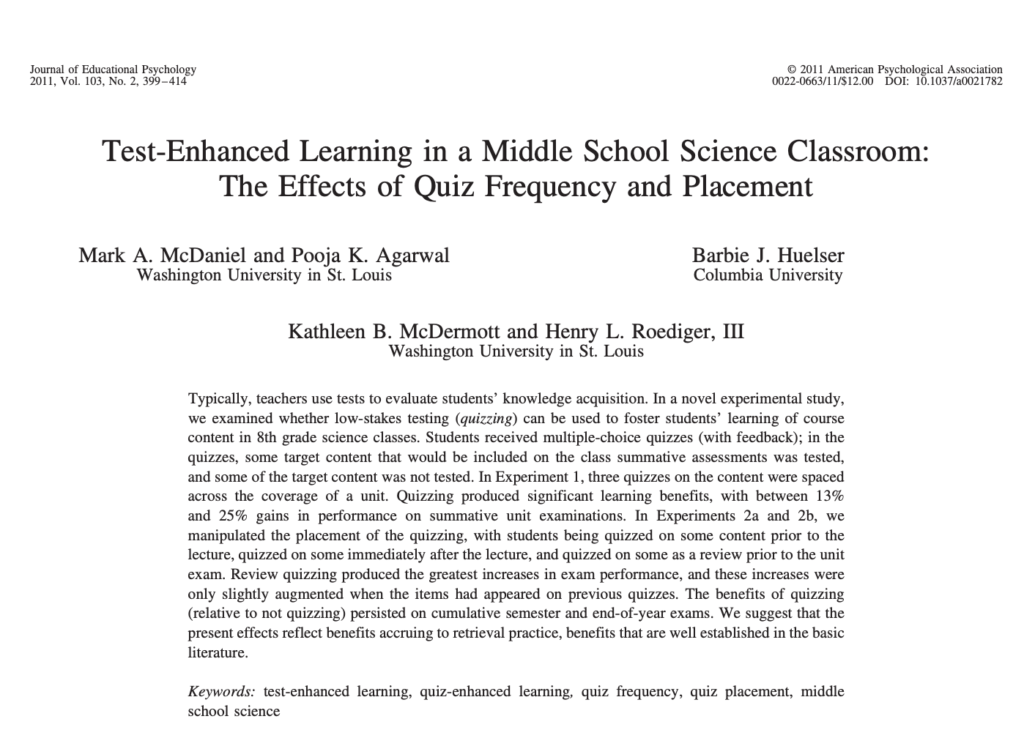
Across a range of research studies, the impact of quizzing and retrieval appears to stand out, both in controlled labs and in busy classrooms. They found some nuanced differences, such as quizzing with corrective feedback outperforming quizzing without such feedback. Perhaps unsurprisingly, retrieval in the form of the later test performed better than retrieval in different formats (e.g. retrieval in a quizzing format, with a subsequent test in a long answer format). Also, the enhancing effect is shown to be positive across 18 different curriculum subjects…SEE HERE.
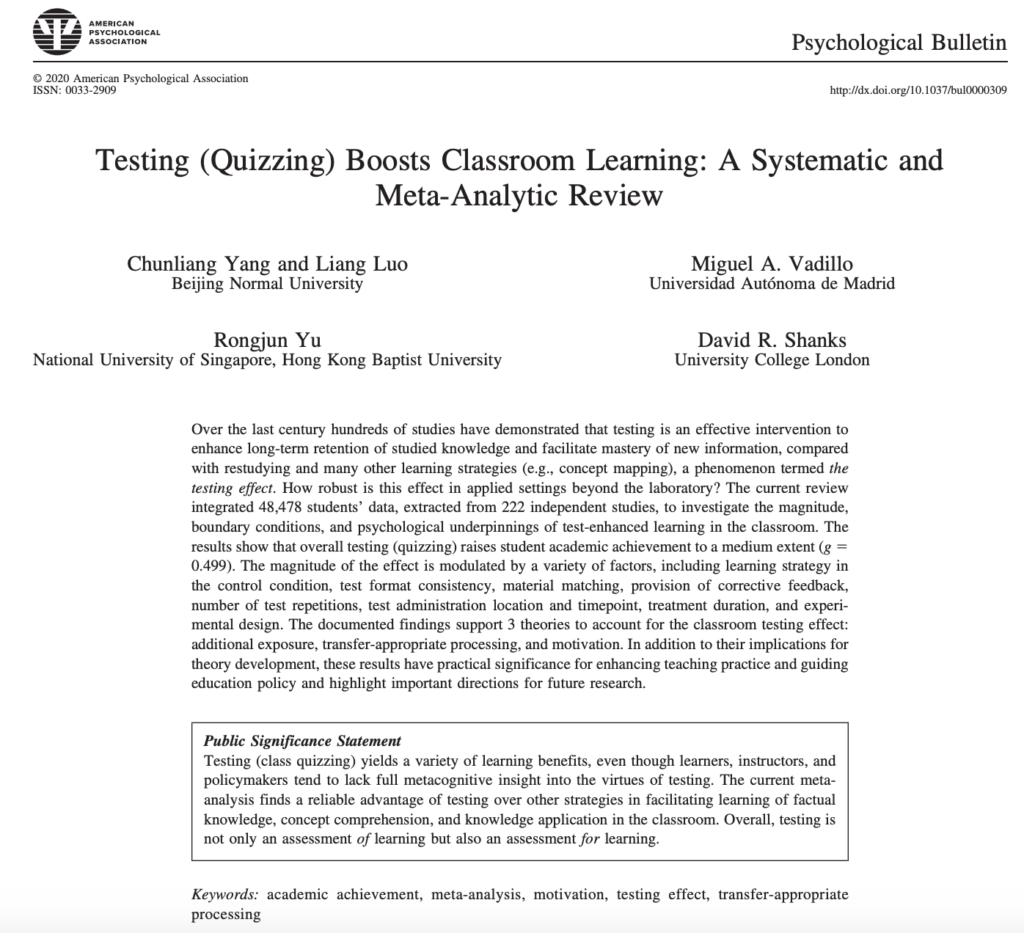
3. ‘Retrieval practice versus worked examples’, by Yeo and Fazio
The more you dig into the deep well of research on retrieval, the more nuanced insights that you find. In this study, the researchers compared retrieval with ‘worked examples‘. When posed with different end goals – either recalling the information or applying it to a problem – offered different results. Retrieval was best for recall, but was inferior to worked examples for problem solving. Perhaps then this reflects a key insight that retrieval of knowledge is necessary but insufficient to be used successfully in all types of assessment. In short, the effect of self-testing doesn’t always trump every other approach…SEE HERE.
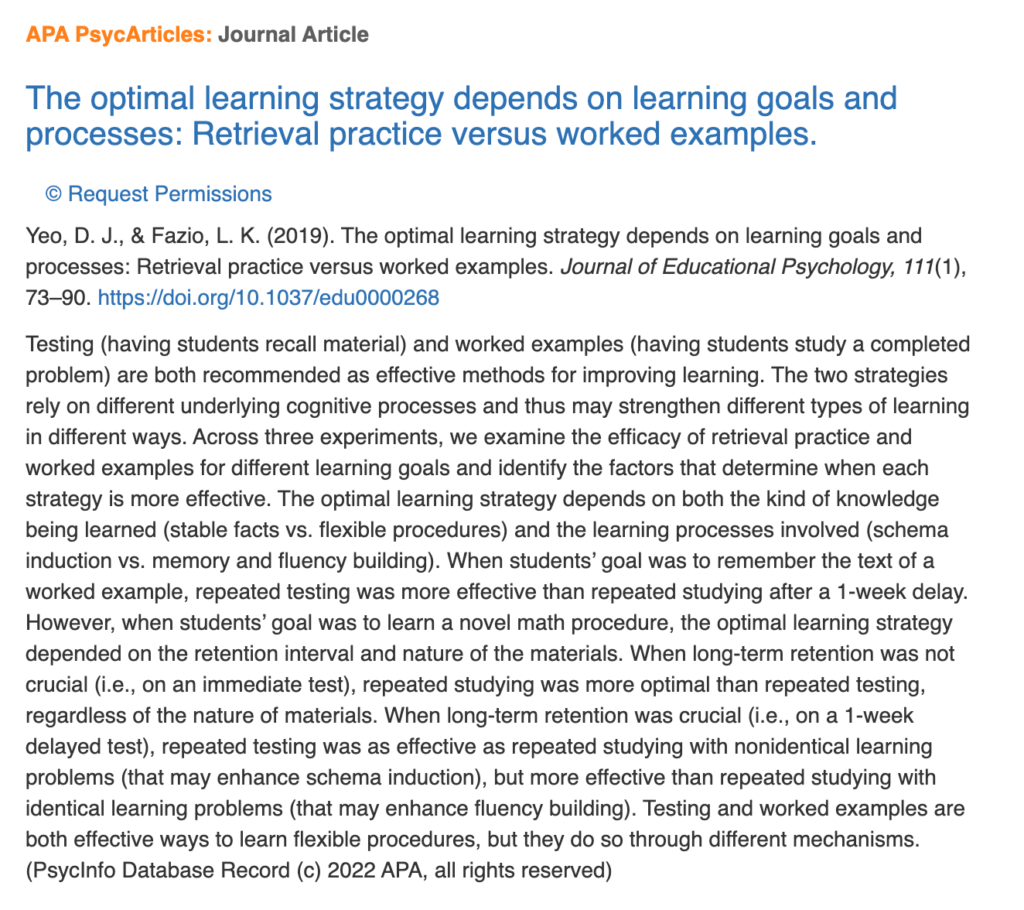
When it comes to retrieval practice, it can be a case that quality trumps quantity. In this research on university students studying mathematics, the researchers show that spacing out the quizzes was more important than the sheer number of quizzes being undertaken. In short, doing fewer quizzes, but carefully crafted over spaces in time was just as impactful of lots more quiz questions. This intelligent use of effort is a very worthwhile insight…SEE HERE.
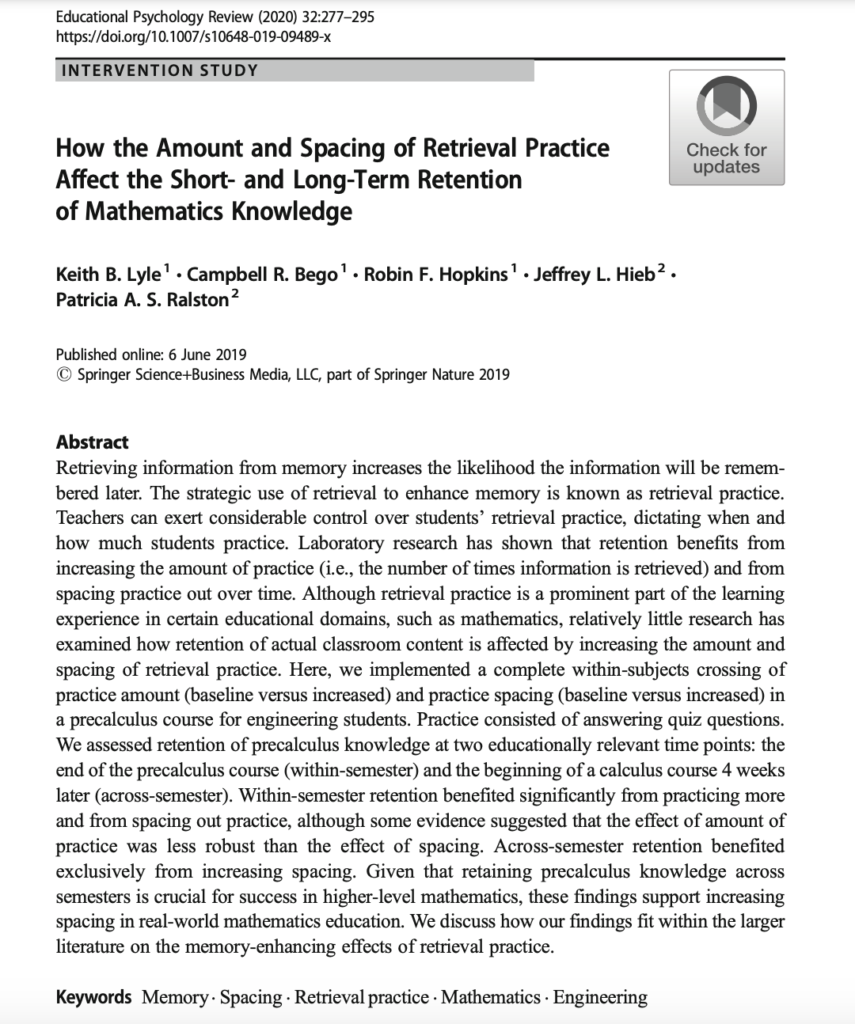
Given all of the positive sounds about retrieval quizzing etc. every student does it, right? Right? Well, this US study shows that even university students lack the metacognition – or strategic approaches to managing their own thinking and learning – to use retrieval practice consistently. They can have the illusion of knowing materials just because it is merely familiar. Retreival itself, given it is typically trickier than re-reading notes or similar, may simply prove harder and off-putting for even conscientious pupils. As such, we shouldn’t assume (even with some training) than pupils’ practise retrieval independently…SEE HERE.
